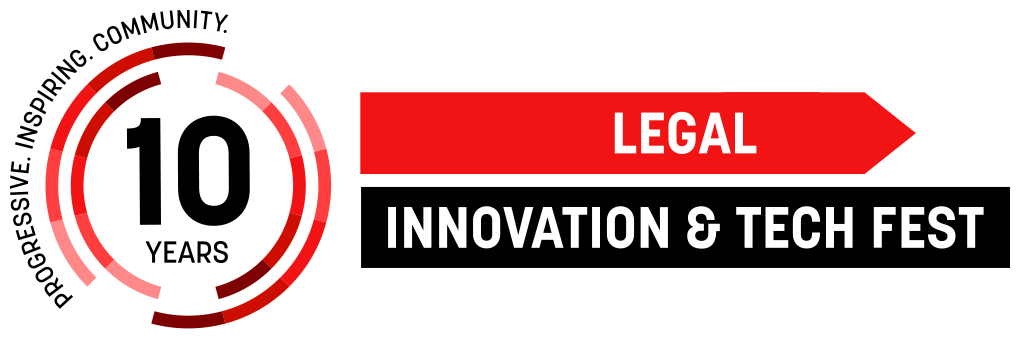It’s Time to Commit to Legal Innovation
)
Our research shows that the biggest challenge in driving legal innovation within organisations is time – with 48% of roundtable participants saying they don’t get enough time and resources away from business as usual to innovate.
“As legal professionals we are used to having limited bandwidth to deliver the legal services that matter most to our clients and business. With ever-increasing pressures on time, and constraints on spend, we are asked to deliver more for less, faster. On the other hand, we recognise that the modern client and the broader business world expects us to keep up with innovative working methods and technology, while being flexible in how our services are delivered and paid for.” Read more in the Legal Innovation Report 2019.
While there is clearly a recognition of the need to innovate, there doesn’t appear to be a burning platform for change within the legal industry. Senior legal leaders are still not motivated enough to disrupt their business model and many clients are not pushing enough to force a change.
The question remains: Why innovate and why now? Why should legal professionals take precious time away from business as usual to focus on innovation?
We spoke to four leading legal innovators to see what they had to say about the matter.
Prof. Erik Vermeulen, Vice President and Head of Governance, Philips Lighting (Netherlands)
Erik Vermeulen is a strong believer in the power of education to inspire innovation. Erik is a Professor of Business and Financial Law at Tilburg University, and an expert advisor to international organisations such as the Organisation for Economic Co-operation and Development (OECD), the United Nations and the World Bank.
While technology and the changes that digitisation bring can certainly be daunting, he feels that legal professionals need to view this change as an opportunity rather than a threat.
“Lawyers should not feel threatened by the exponential growth of new technology and the subsequent social and economic change that it brings. But nor should they deny such change and cling to traditional ways of operating. Instead, they should view new technology as a source of tremendous opportunity and growth. If, as seems likely, machines can reduce standardized legal work, there will be more time for assisting the client with the new and specific challenges of navigating the complexities of a digital environment.
“However, to enjoy the benefits of such opportunities, it will be necessary to possess a new level of literacy in the various basic building blocks of this new world. In an age of ‘ubiquitous computing,’ lawyers must innovate. They must not only understand emerging technologies but also participate in their design.”
Hear more from Erik at The Legal Festival: Self-Learning Lawyers for the Digital Age
Prof. Michele Destefano – Founder – Law Without Walls
Recognised as a Legal Rebel by the American Bar Association, Michele is the founder of LawWithoutWalls, an international think-tank of more than 2,000 lawyers, business professionals and entrepreneurs. She is a professor at the University of Miami School of Law and guest faculty at Harvard Law School Executive Education.
Michele says that flexing your innovation muscles will develop the essential skills that legal professionals will need in the future.
“Right now, given that the legal marketplace is slow to change, it’s those lawyers that innovate who will have a leadership and client service edge.
“I believe that regardless of whether or not their business model is broken or working, all lawyers should try their hand at innovating. In the process of learning how to innovate, lawyers will hone the skills, the mindset and the behaviours that clients desire today and will require for tomorrow. There’s a lot of research out there that the best problem ‘solvers’ are the best problem ‘finders’; spending more time up front on problem finding is how multi-disciplinary teams come to the best solutions. And in order to be a great collaborative problem finder we need skills like empathy, growth mindedness, risk taking, and self-awareness. When you combine these collaborative, creative problem finding skills with strong leadership skills – those are the lawyers that are going to rock.”
Astrid Kohlmeier, Attorney and Media Designer (Germany)
Astrid has worked with in-house counsel, law firms and legal tech companies across Europe to offer the legal market a new frame of thought: combining the disciplines law and design to create innovative solutions to legal problems, namely Legal Design Thinking. She was recently named one of the “Women of Legal Tech 2018” honouring the contributions of women with the commitment, courage and vision to shape the young Legal Tech sector.
Astrid’s take on legal innovation is simple: put the client at the centre.
“The legal industry is undergoing a massive change, mainly for three reasons – cost pressure on law firms and internal in-house departments is increasing, new digital legal products and services are disrupting traditional service delivery and most importantly, users’ expectations of legal services are affected by a 24/7 mentality and digital availability.
“The answer to these challenges lies in innovative and user-centric solutions created with human-centric thinking and methods, such as legal design. Random innovations as before are no longer good enough. The more multi-disciplinary teams of lawyers, coders and problem specific stakeholders are getting collaboratively involved in innovation, the better their services, processes and legal content will be – as a clear opportunity to develop a true USP. The most important driver should be the focus on solving real problems, creating services that are usable, engaging and really meet the needs of the user.”
Astrid will share more on Legal Design at The Legal Festival: Adopting Legal Design Thinking to Drive True Collaboration.
Dr Jenny Brockis, Founder, The Science of High-Performance Thinking
With a medical background and a fascination with neuroscience, Jenny chose to swap her consulting room to build better brains for business. She works with CEOs, HR Managers and aspiring leaders to optimise cognitive fitness for greater mental performance.
Jenny says innovation for legal professionals is all about moving forwards, even if it’s just baby steps.
“In a world that’s changing fast, staying in the status quo is tantamount to running backwards. To remain relevant and one step ahead of the pack, innovation is a must, not just to survive but to thrive.
“It starts by understanding what innovation is because it’s not always about coming up with something big or new. It might be a fresh perspective, a tweak of an existing business model or knowing when to ditch an unhelpful process. For innovation to happen it’s essential to step off the hamster wheel of what’s ‘normal’ and take time out to think, quietly, deeply and reflectively on what could be done better or differently and engage with what’s possible. It’s an evolving process and a continuum, best mulled over with input from others because our individual perception of reality may be warped, and our assumptions biased. Importantly innovation takes courage because we have to be brave enough to take the risk of trying something different knowing it might not work.”
Jenny will expand on these ideas during her session at The Legal Festival: How to Use the Science of Connection to Bring our Best Selves to Work.
Meet more exciting legal innovators like these at The Legal Festival, 12-13 June 2019 in Sydney.

